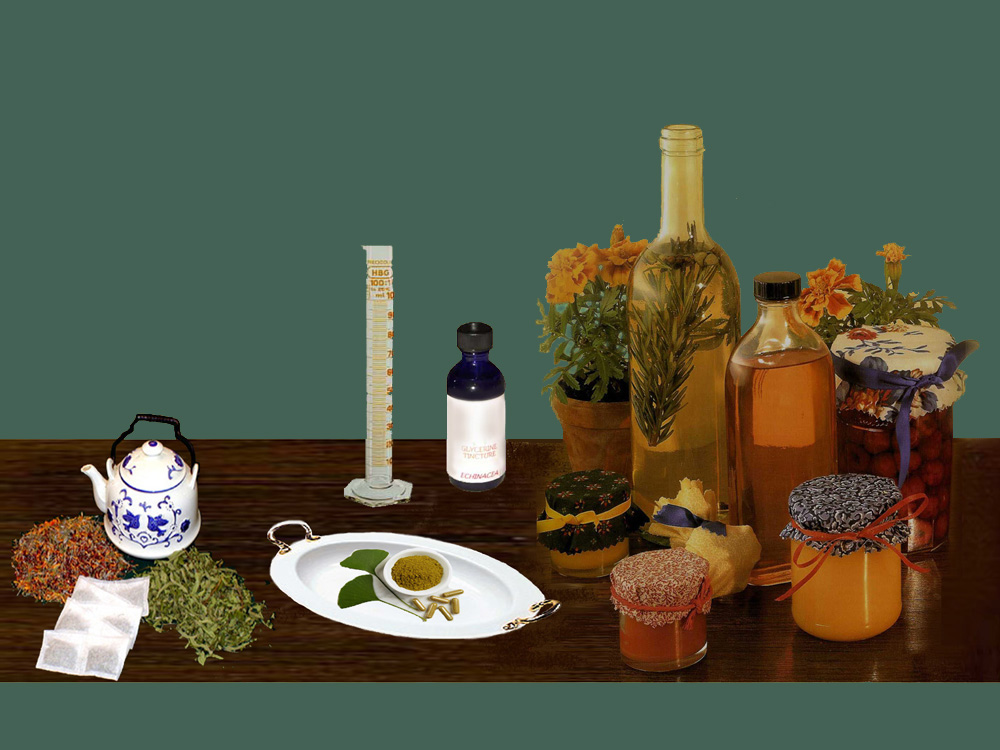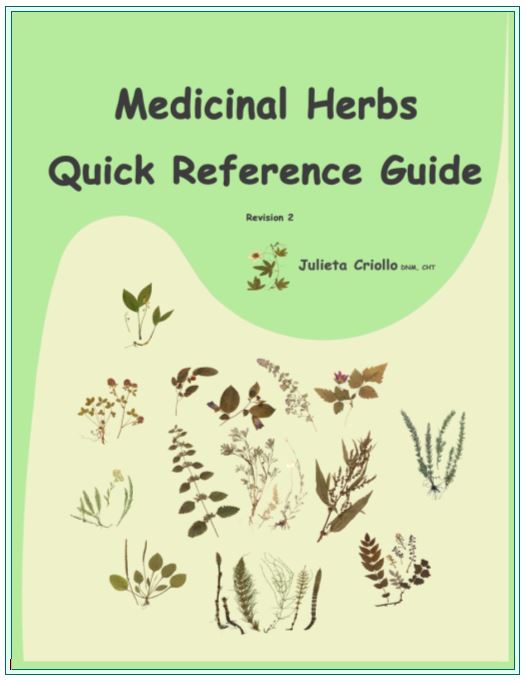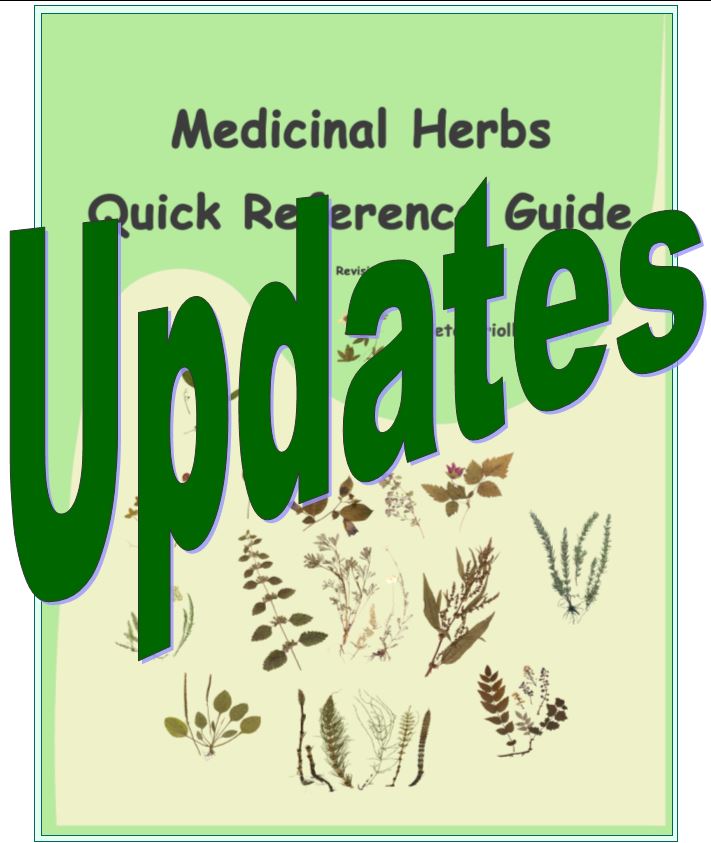Herbal medicine is the use plant medicine to promote health. Herbal medicine uses a holistic approach to health — it addresses the physical, mental, and spiritual needs of a person as a whole.
“Herbalist” is a general term that is often used to refer to a health practitioner that uses herbal medicines to promote health and well-being; that is, someone that makes herbal medicine remedies, someone involved in the study of medicinal properties of the plants.
However, not all health practitioners that use herbal remedies are called herbalists (for example, aromatherapists, naturopathic doctors, homeopathic doctors). Some of the health practitioners that are referred to as herbalists are those trained in Western Herbal Medicine, Ayurveda Medicine, and Traditional Chinese Medicine.
The following are some natural medicine modalities that makes use of herbal medicine:
- Western Herbal Medicine (or Phyto-therapy)
Western Herbal Medicine is a holistic system that uses the scientific knowledge of conventional medicine (anatomy, physiology, pathology, clinical assessment, and non-invasive physical examinations, etc.) to evaluate the health and well-being of an individual, and uses herbal and natural remedies, nutrition and lifestyle adjustments, and adjunct therapies (if/as needed)… to promote and stimulate the body’s natural ability to heal itself; while supporting and nurturing the holistic (e.g., physical, emotional, spiritual,…) needs of an individual.
The use of herbs is based on empirical & scientific knowledge of the medicinal properties of plants and their effects on different body systems.
Recommendations/treatments for an individual is based on a detail information of patient’s medical, social, and family history, lifestyle and nutritional habits, appropriate non-invasive physical exams, and available medical diagnostic exams. Treatments may also include recommendations to adjunct therapies such as massage therapy, physiotherapy, chiropractic treatment,. . . or a visit to a medical doctor for medical evaluation and/or diagnostic exams.
In Western Herbal Medicine, a herbalist may be known as:
- Clinical Herbalist (CH) or Clinical Herbal Therapist (CHT) — an individual who has study 3-4 years program in western herbalism which include over 300 hours of clinical practicum.
- Registered Herbal Therapist (RHT) — an Clinical Herbal Therapist who is also registered with the Canadian Herbalist’s Association of BC.
- Medical Herbalist (MH) — designation used in Europe for a Clinical Herbal Therapist or Clinical Herbalist.
- Master Herbalist (MH) — a 1-year research program with a thesis on an aspect of Herbal Medicine (does not include clinical practicum).
- Chartered Herbalist (CH) — a 1-year program that focuses on the medicinal properties of plants of North America (does not include clinical practicum).
- Herbal Consultant (HC) — a 1-year program that focuses on the medicinal properties of plants of North America (does not include clinical practicum).
- Traditional Chinese Medicine
Traditional Chinese Medicine (TCM) is a holistic system based on the theory that health and longevity is the result of living in harmony. Disease is just the result of some type of disharmony.
TCM uses two basic systems to determine the type of disharmony befalling a patient and appropriate treatment thereof: the Yin/Yang duality, and the Five-Element theory (wood, fire, earth, metal, and water). In TCM, everything in nature is associated to one of the five elements (health problems, organs, part of the body, emotions, plants, herbal remedies, seasons, etc.) and treatment may so be designed accordingly.
A TCM practitioner is trained to seek patterns of disharmony or imbalances using both systems and will try to restore balance according to these systems.
- Homeopathy
Homeopathy is a holistic healing based on the theory that “likes cure likes”. This means that a substance causing a set of symptoms in a healthy person can be used to treat a condition with similar symptoms. Homeopathic remedies are made from a variety of substances, including herbal products. Homeopathic remedies are highly diluted and therefore safe to use. Although many of the homeopathic remedies are made from herbal medicines, a homeopathic doctor is not referred to as a herbalist.
- Ayurveda
Ayurveda is not just a healing modality, it is a holistic system for balanced and harmonious day-to-day living, encouraging physical, mental, emotional and spiritual well-being.
Ayurveda is based on the interaction of the body, mind, and spirit; and energy is manifested in five elements — Ether, Air, Fire, Water, and Earth. Together, the five elements form the basis for all matter, and combine to form three basic forces (or vital energy) called the three Doshas — “Vata, Pitta, Kapha”. The Doshas exist in everything in the universe and influence all mental and physical activity. Each individual has a unique combination of the three Doshas called “prakriti”. Disease is the manifestation of Doshas imbalance. Treatment is based on identifying the Doshic constitution of the individual and any imbalance present, and consists in the use of natural medicines (herbs, minerals, vegetables) as well as nutrition and lifestyle adjustments.
- Naturopathic Medicine
This is a system of holistic healing that encompasses the use of several natural therapies, such as homeopathy, herbal medicine, nutrition, massage therapy, and others. The difference between a naturopathic doctor and a specialized therapist (such as a clinical herbalist, chiropractor, massage therapist, homeopathic doctor, etc.) is the depth of the training in the specific area, the specialized therapist receiving a more in depth training in their field.










